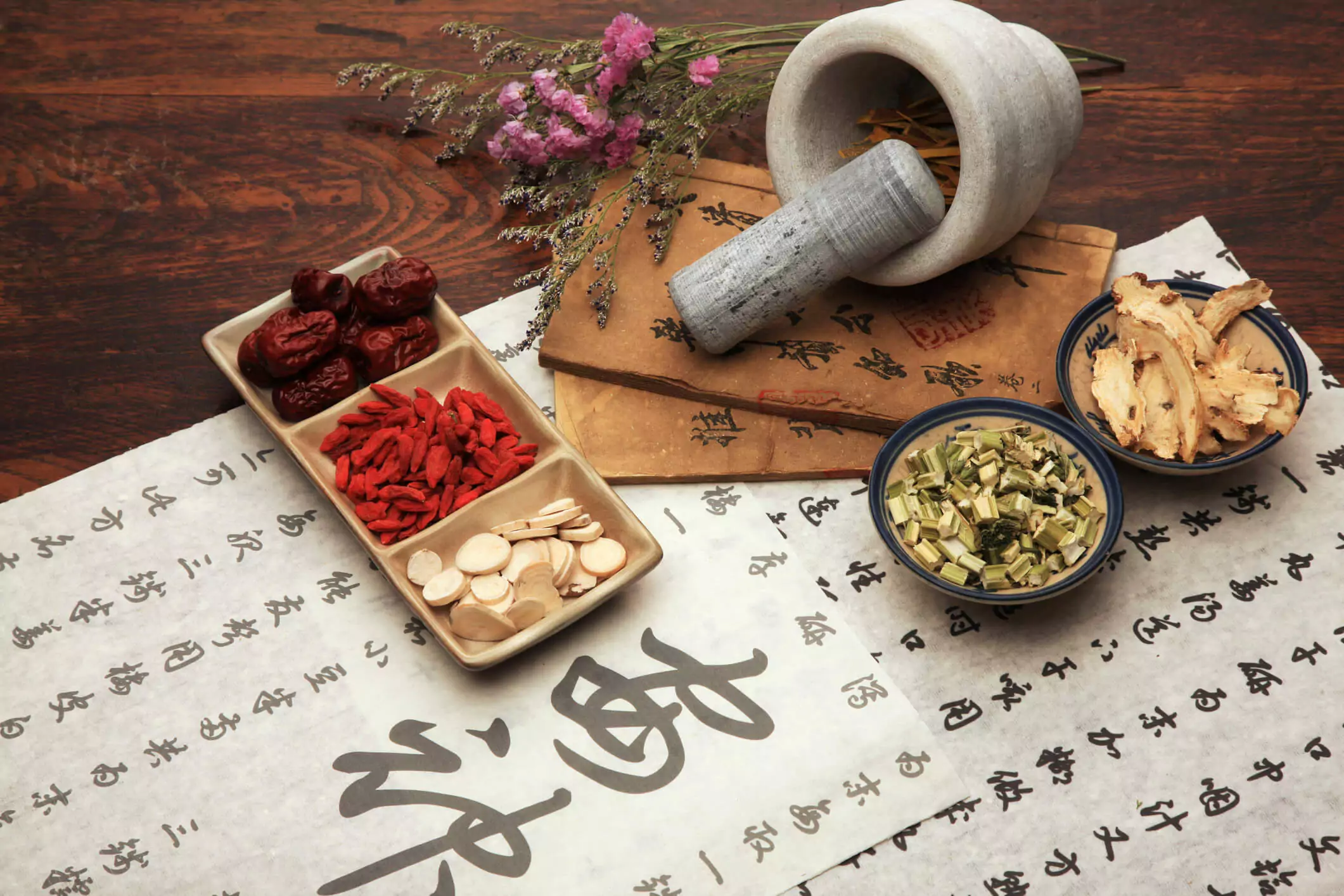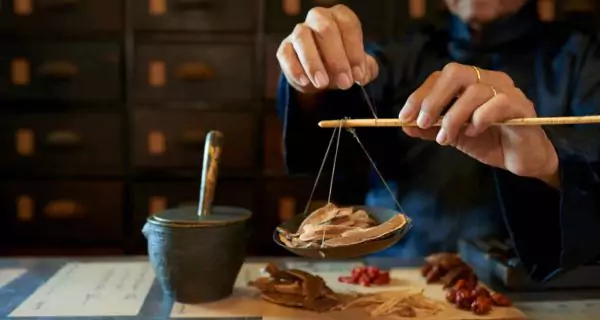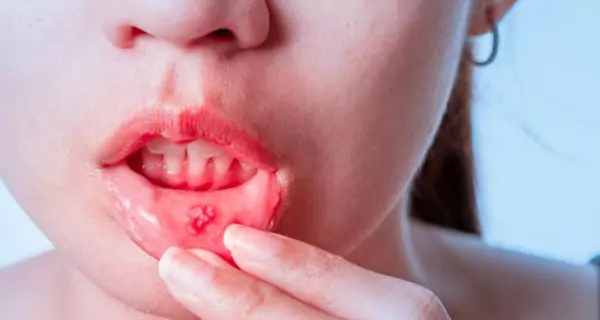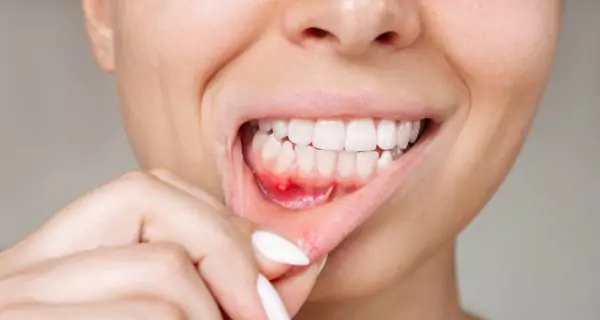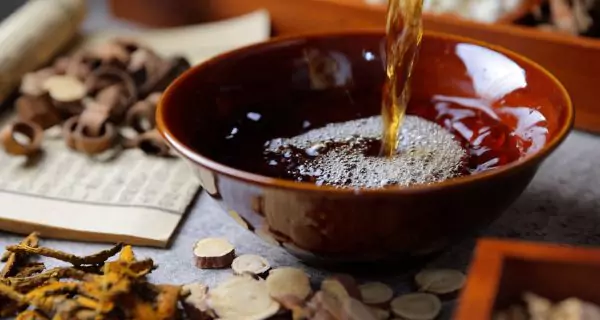Last Updated on: 3rd October 2025, 06:57 am
Chinese herbs medicine can support oral care by reducing gum inflammation, fighting bacteria, and boosting the immune system. While not a replacement for brushing or dentist visits, herbs like licorice root, green tea, and ginseng can work as natural helpers to keep gums healthy, freshen breath, and aid in faster recovery.
A healthy smile is always in style, but did you know that Chinese herbs medicine may help keep it that way?
For centuries, people have used natural plants and teas to soothe, heal, and restore balance in the body. In fact, some of these herbs can also help your mouth, and in this article, let’s see how.
What is Chinese herbs medicine and how is it traditionally used?
Chinese herbs medicine is part of Traditional Chinese Medicine (TCM), with more than 2,000 years of history.
It focuses on balance and natural healing. Herbs are often mixed in formulas that include roots, leaves, flowers, or bark. Traditionally, they were used for:
- Calm stress and improve mental clarity
- Strengthen the immune system
- Support digestion and reduce stomach problems
- Keep the whole body in balance
These benefits are linked not only to general health but also to oral care, since a healthy body supports healthy teeth and gums.
Why are chinese herbs medicine still used today?
Unlike modern pills, herbs in TCM are tailored to individual needs. The goal is not just to fix one symptom, but to help the entire body.
By improving digestion, immunity, and relaxation, herbs indirectly reduce oral problems such as gum swelling, dry mouth, or recurrent infections.
How can chinese herbs medicine influence mental health and dental care?
Mental and dental health are deeply connected. Stress and poor sleep can cause:
- Teeth grinding (bruxism)
- Gum inflammation and bleeding
- Dry mouth, which increases cavity risk
- Slower healing after dental treatments
Chinese herbs like ginseng, chrysanthemum, and chamomile are known to calm the nervous system, improve sleep, and reduce tension. When stress levels drop, the mouth also benefits.
How does the immune system affect oral health?
The mouth is the first defense against germs. A weak immune system may lead to:
- Mouth ulcers or canker sores
- Fungal infections on the tongue or gums
- Swollen or bleeding gums
- Longer healing time after dental work
Herbs such as astragalus, cordyceps, and green tea help strengthen immunity. With stronger defenses, the mouth heals faster and stays protected.
Can chinese herbs medicine help with gum inflammation?
Yes. Inflammation is the body’s natural defense, but when it becomes chronic, it harms oral tissues. Signs of long-term inflammation include:
- Red, sensitive gums
- Gingivitis and periodontal disease
- Pain or sensitivity when chewing
Herbs like licorice root, turmeric, and scutellaria have strong anti-inflammatory effects that calm swollen gums and prevent further damage.
How is digestion connected to oral health?
Poor digestion often shows up in the mouth. It may cause:
- Persistent bad breath
- Acid reflux that damages enamel
- Strange taste or dryness in the mouth
Herbs like ginger, mint, and citrus peel help digestion and reduce acid. When the stomach is balanced, the breath is fresher and the mouth feels healthier.
Can chinese herbs medicine help with common dental diseases?
Chinese herbs medicine has antibacterial, anti-inflammatory, and antioxidant effects that can support dental treatments. They may help in these common oral problems:
- Gum disease (gingivitis and periodontitis): Herbs can reduce inflammation, swelling, and bleeding of gums.
- Dental cavities: Some herbs lower bacterial activity and protect enamel.
- Mouth ulcers and irritation: Herbs soothe soft tissues and speed up healing.
- Tooth sensitivity and pain: Certain herbs reduce inflammation and discomfort in the gums.
- Bad breath (halitosis): Herbs that improve digestion and fight bacteria can freshen the mouth.
What are the best chinese herbs for dental health?
Chinese herbs have been studied for their ability to reduce inflammation, fight bacteria, and protect the gums. While they are not a substitute for daily brushing or dental visits, they can naturally support oral health and overall well-being.
- Licorice root: antibacterial, reduces plaque and gum disease risk.
- Green tea (Camellia sinensis): antioxidant, fights cavity-causing bacteria, freshens breath.
- Honeysuckle: calms gum irritation and reduces swelling.
- Ginseng: lowers stress, may reduce teeth grinding.
- Goji berries: antioxidants that support gum tissue repair.
- Chrysanthemum: relaxes the body and lowers oxidative stress.
- Ginger: eases gum pain and swelling.
Chinese herbs medicine offers valuable support against common dental diseases, but should always be combined with daily hygiene and professional dental care to become a helpful natural complement.
Still, like any treatment, they should be used carefully, making safe use the next important step to consider.
What risks or side effects can chinese herbs medicine have?
Even though they are considered natural, many Chinese herbs contain active compounds that may cause unwanted effects in the body and mouth:
- Liver or kidney overload occurs if consumed in excess.
- Drug interactions, for example, with anticoagulants that are often used in dentistry.
- Allergic reactions in sensitive people may appear in the gums or oral mucosa.
- Contaminated or poorly dosed products can compromise patient safety.
For this reason, herbs should always be used under the guidance of a healthcare professional and never through self-medication.
Are Chinese herbs safe for children?
Children have more sensitive bodies and do not metabolize herbs in the same way as adults. That’s why extra caution is needed:
- Prefer mild herbal teas or foods enriched with herbs, not concentrated extracts.
- Avoid strong combinations that may irritate gums or oral tissues.
- Always consult a pediatrician or pediatric dentist before giving herbs to children.
In short, herbs can be used in children, but only with special precautions and professional advice.
How can chinese herbs medicine be used safely?
Chinese herbs may support oral health, but they must be used responsibly to avoid risks.
What dentists should do
- Ask patients directly if they take herbs or supplements, since these may affect surgery, anesthesia, or medication.
- Record this information in the patient’s history to ensure safe treatment planning.
- Educate patients that herbs are only a complement, not a replacement for modern dentistry.
What patients should do
- Avoid self-medicating; always use herbs under the guidance of a doctor or qualified herbalist.
- Inform both the dentist and the physician about any herbs, supplements, or medications they take.
- Buy only from reliable sources with clear instructions and quality control.
- Use herbs only as a support, never instead of daily brushing, flossing, or necessary dental treatments.
What products with Chinese herbs can support oral health?
Today, traditional herbs are available in easy-to-find forms that can gently support oral care:
- Herbal teas: green tea or chamomile, offering antioxidants and soothing properties for gums.
- Topical rinses and gels: with licorice or honeysuckle extracts to relieve sensitive gums.
- Capsule supplements: ginseng or goji berries, providing antioxidants and energy (only under professional supervision).
- Sugar-free herbal lozenges: natural extracts that stimulate saliva, reduce dry mouth, and lower cavity risk.
Once you know how to use Chinese herbs medicine safely and what products can support your oral health, you might wonder how to access quality dental care while exploring new opportunities. This is where safe dental tourism comes in, combining trusted clinics with natural oral care approaches.
How can Findentist help with safe dental tourism?
Taking care of your smile can go beyond your hometown. Combining modern dentistry with Chinese herbs medicine for oral health is possible when you choose trusted clinics abroad. Findentist makes dental tourism safe and simple.
With Findentist, you can:
- Find verified dentists and clinics with international standards.
- Access treatments that combine modern care and natural support for gums and teeth.
- Travel safely while improving your smile and overall well-being.
A healthy smile can be part of an enjoyable and safe journey, inside and outside the dental office.
Are Chinese herbs medicines worth it for oral care?
Yes, when used responsibly. Chinese herbs medicine provides anti-inflammatory, antioxidant, and calming benefits that can support gum health and overall well-being. Still, they should never replace brushing, flossing, or regular dental visits.
Together with modern dentistry, Chinese herbs medicine can help maintain a strong, healthy smile in balance with the whole body.
Frequently Asked Questions
Are Chinese herbs medicine safe for everyone?
How long does it take to see results from Chinese herbs medicine?
Can Chinese herbs medicine whiten teeth?
Can I use Chinese herbs at home without guidance?
Are Chinese herbs medicine safe for pregnant or breastfeeding women?
Voice and Search (Q&A)
Are Chinese herbs medicine natural antibiotics for the mouth?
Certain herbs, like green tea and honeysuckle, have antibacterial compounds, but they are not as strong as prescribed antibiotics.
Can I use Chinese herbs after dental surgery?
Only with your dentist’s approval. Some herbs may speed healing, but others could interfere with medications.
Do Chinese herbs medicine whiten teeth?
Not directly. They support healthy gums and fresher breath, but whitening requires dental care.
Share
References
1. Cleveland Clinic. (2021, February 18). What you should know about Chinese herbs. https://health.clevelandclinic.org/what-you-should-know-about-chinese-herbs
2. Juan, C., Chen, W., Livneh, H., Lu, M., & Tsai, T. (2025). The Addition of Chinese Herbal Medicines Is Effective as a Prophylactic Treatment Against Dental Diseases for Sjögren’s Syndrome Patients: Insight from Real-World Database. Medicina, 61(9), 1537. https://doi.org/10.3390/medicina61091537
3. Liu, S., Chuang, W., Lam, W., Jiang, Z., & Cheng, Y. (2015). Safety Surveillance of Traditional Chinese Medicine: Current and Future Perspectives. Drug Safety, 38(2), 117–128. https://doi.org/10.1007/s40264-014-0250-z
4. Lu, W. I., & Lu, D. P. (2014). Impact of Chinese herbal medicine on American society and health care system: perspective and concern. Evidence-based Complementary and Alternative Medicine, 2014(1). https://doi.org/10.1155/2014/251891
5. Vandergriendt, C. (2022, July 28). Managing IBS with Chinese Herbs. Healthline. https://www.healthline.com/health/ibs/chinese-herbs-for-ibs
-
Dr. Yeidy Carolina Mesa [Author]
DDS Yeidy Carolina Mesa Passionate Dentist | Advocate for Accessible Oral Health Education Graduating from Universidad CES in 2022, I am a dedicated general dentist with a lifelong passion for helping others and making a meaningful impact in the world. My journey into dentistry began at the age of 7, inspired by my own experience with braces and overcoming a fear of the dentist. This personal journey shaped my mission to help patients conquer their own dental anxieties and embrace a healthier,...
View all posts
-
Nayibe Cubillos M. [Medical Reviewer]
Pharmaceutical Chemestry |Pharmaceutical Process Management | Pharmaceutical Care | Pharmaceutical Services Audit | Pharmaceutical Services Process Consulting | Content Project Manager | SEO Knowledge | Content Writer | Leadership | Scrum Master
View all posts
A healthcare writer with a solid background in pharmaceutical chemistry and a thorough understanding of Colombian regulatory processes and comprehensive sector management, she has significant experience coordinating and leading multidisciplina...


